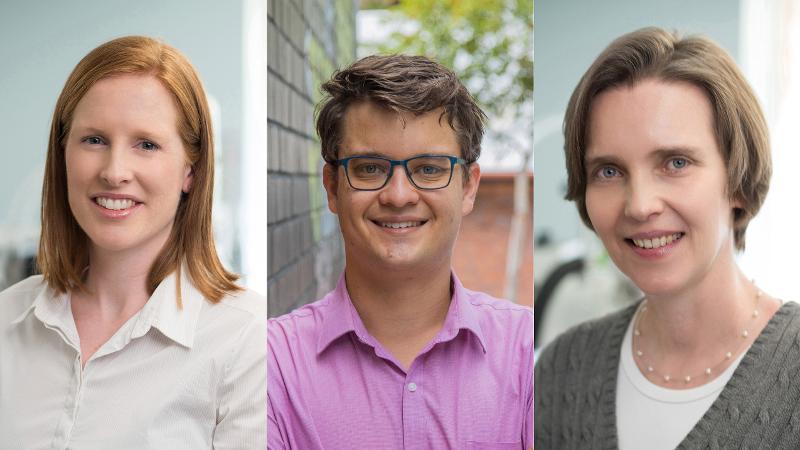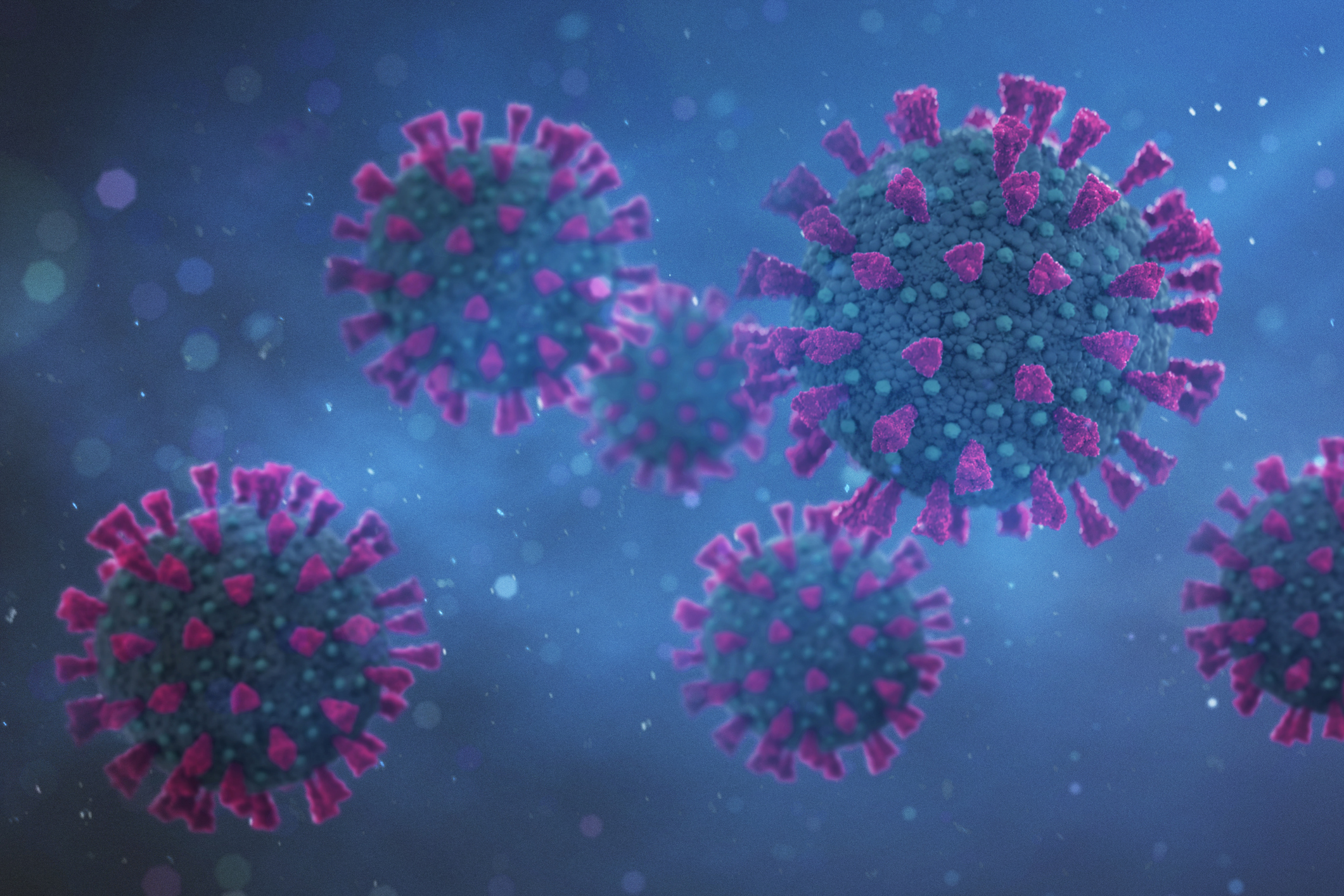
A team of Brisbane scientists led by QUT’s Dr Nathan Boase has been awarded a U.S. Department of Defense global grant to investigate a new method to prevent emerging viruses like COVID-19 and Monkeypox from being able to spread through human cells during new pandemics.
The research aims to develop a ‘stop gap’ therapeutic that can help lessen a new virus’s impact on people while society waits for a vaccine to be developed.
Dr Boase (pictured above centre) is a polymer chemist who researches nanomedicines and had not previously focused his efforts on viruses prior to the COVID-19 pandemic, but pivoted during the 2020 lockdown.
He is chief investigator for the new two-year project, which will begin in May thanks to a $US200,000 Discovery Award grant from the U.S. Department of Defense, under its Congressionally Directed Medical Research Programs.
It will target the casing that surrounds viruses and how this can be disrupted to stop the virus merging with human cells throughout the body.
“This project is the first step towards the development of broad-spectrum antiviral therapeutics that can be stockpiled, at low cost, and rapidly deployed to fill the gap between the emergence of a new viral disease and the development of an effective vaccine,” Dr Boase said.
“These new therapies are needed to protect civilian populations and to maintain operational preparedness of military forces.”
The initial research will focus on proof of concept and see Dr Boase work with two colleagues from QUT’s Centre for Materials Science and School of Chemistry and Physics, Professor Kathryn Fairfull-Smith (centre co-director, pictured above left) and Professor Leonie Barner (pictured above right), and Dr Kirsty Short from the University of Queensland.

“The U.S. Department of Defense offers grants each year in targeted areas and one of those areas is combatting emerging viral diseases,” Dr Boase said.
“I read about this funding program while working from home in the 2020 lockdown and it got me thinking about how my work could pivot to help this area of great need.
“When a new virus emerges like COVID did, we are woefully underprepared to protect ourselves from it. Even with rapid development it still took 11 months to develop a vaccine for COVID.
“With thousands of mammalian viruses not yet discovered, and a continued push to globalisation, the unfortunate reality is that future viral pandemics are inevitable. The current emergence of Monkey Pox, as we are only just recovering from the COVID pandemic, highlights the need for these rapid therapeutics.
“We need to have broad-spectrum therapeutics on hand that can reduce disease severity, irrelevant of viral strain, in the interim until a vaccine can be produced.
“Vaccines target a specific virus, but we are targeting something that is common across all ‘enveloped’ virus types – a wide virus class that includes HIV, influenza, SARS, HPV and COVID-19.
“We are investigating how we can disrupt the membrane – or casing – that surrounds all these viruses and prevent the virus from merging with human cells and spreading through the body.
“Specifically, we will synthesise new polymers to bind to virus casings and investigate which polymers are most effective at weakening those casings.”
Professor Kathryn Fairfull-Smith said a novel part of the project was that it was investigating a multifaceted attack on viral infection that focused on virustatic binding, virucidal deactivation and anti-inflammatory response.
“Other research programs are looking at one or two of these mechanisms, but we’re not aware of any approach, to date, that has attempted to utilise all three,” she said.
“We hope that this unique approach will be the key to developing potent therapeutics that treat both the primary viral infection and reduce the damage caused by inflammation.”
Professor Leonie Barner said the team’s work over the next two years aimed to produce preliminary findings that would attract more funding from major medical grants.
“We want this initial project to produce the fundamental new scientific knowledge that will allow for the eventual development of a clinical therapeutic that can aid in the defence against emerging viral diseases,” she said.
This work was supported by the Office of the Assistant Secretary of Defense for Health Affairs through the Peer Reviewed Medical Research Program under Award No. (W81XWH-22-1-0106). Opinions, interpretations, conclusions, and recommendations are those of the author and are not necessarily endorsed by the Department of Defense.
QUT Media contacts:
- Mechelle McMahon, media@qut.edu.au
- After hours, 0407 585 901 or media@qut.edu.au


